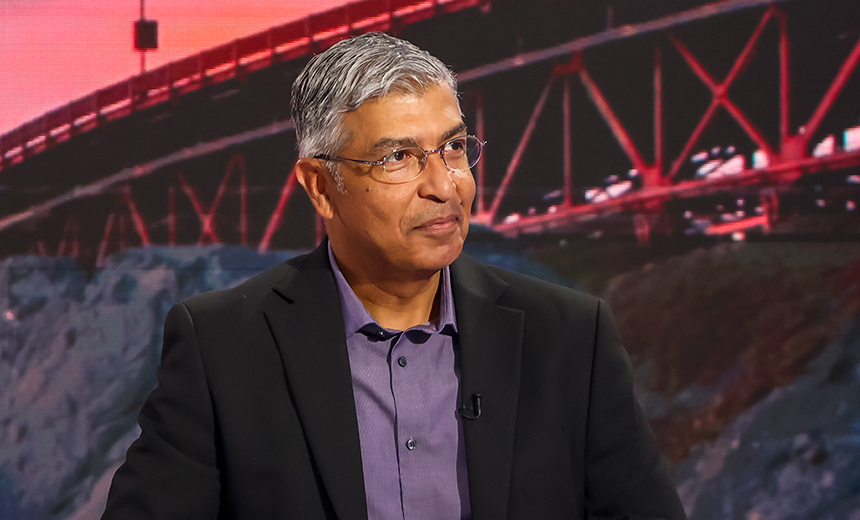Explore related topics:
Events,
Identity & Access Management,
RSAC Conference
RSA CEO Rohit Ghai Discusses Evolving Security Threats and Technological Disruption
The integration of artificial intelligence, increasing geopolitical tensions, and the advancement of cyber threats are significantly altering how organizations perceive risk, resilience, and identity management. Rohit Ghai, CEO of RSA, emphasizes the necessity for enterprises to adapt to these changes, outlining key strategies to navigate the complexities of cybersecurity.
In particular, Ghai identifies three critical strategies for managing identity in 2025: passwordless access, posture management, and platformization. He refers to these as the “three Ps of identity management,” highlighting their importance in today’s evolving threat landscape.
During a recent video interview at the RSAC Conference 2025, Ghai elaborated on the strategic relevance of identity as a control plane in security infrastructures. He noted the ongoing shift towards passwordless authentication due to the rise of non-human identities and discussed the implications of AI for both security and malicious actors. The adoption of AI technologies requires a nuanced understanding of their potential uses in cyber threats.
Ghai’s extensive background in cybersecurity spans over two decades, having steered RSA through its transition from a Dell Technologies division to an independent entity focused on identity and risk management. His leadership experience includes previous roles at Dell EMC, Symantec, and Computer Associates, making him a pivotal figure in the ongoing dialogue about trust in digital environments, particularly as AI contributes to increased complexity.

